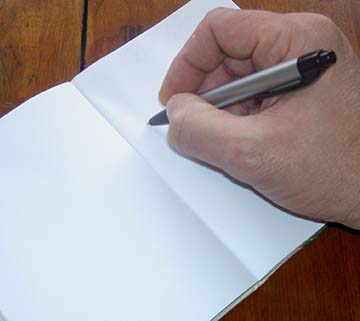Top tips for making a will and choosing potential guardians for your kids
IRELAND – No parent wants to think about dying, so much so that many of us put off putting provisions in place in the event that we do pass. But making a will now could save you and your loved ones a lot of heartache in the long term.
Susan Murphy of Makemywill.ie says: “If proper estate planning isn’t done it is the family members left behind who will pay the price. It’s the only way of safeguarding the future of whoever you’re leaving behind, and the only way you will have a say in what happens.”
Where there is no will in the event of a death, you are said to die ‘intestate’. This means any property or money you have will be divided out under the rules of the Succession Act 1965.
In this case, a spouse or civil partner will be entitled to two thirds of your estate, and the children will be entitled to the other third. If there are no kids, the spouse or civil partner gets the entire estate, and likewise if there is no other half, the children will get the estate.
“A family can be left with a lot of problems if there are minors and the spouse cannot access the full estate until the kids come of age, especially if you have a farm or business,” says Murphy.
Making a will isn’t too difficult, nor will it cost you an arm and a leg. Most solicitors charge in and around the €200 mark. (Murphy charges €98 for individuals and €145 for couples). You don’t even have to leave your house to organise the will.
“In my case, I’ll get the person’s phone number or email, have a 15 to 20-minute chat over the phone, and draft up the will. I’ll email a draft for their approval.
In order to make a will valid, it must contain your own name and address. Any beneficiaries must be named; make sure you state who they are and their exact name so there is no uncertainty.
“A witness can be anybody who is independent, not a beneficiary and preferably not a family member. It can be a work colleague, neighbour or family friend. Make sure you get clear instructions on how to execute the will.”
“The guardian is the person who would take care of the kids if the unthinkable happened, so pick someone who would mean the least amount of upheaval for the kids, someone they have a good relationship with, preferably someone who lives in the area so they wouldn’t have to move away from their school, friends or family. Also consider if there’s someone you believe would have similar child-rearing principles as you,” she adds.
If your children are still below adult age, you will have to include the name of a trustee or trustees in the will.
“Usually you have two trustees, one from each side of the family, and usually one is the guardian. The norm would be that everything is converted to cash and put into a trust fund for the kids until they reach 21. In the meantime the trustees usually have discretion to use the trust fund for the child’s maintenance, welfare and education. Some people like to insert a provision that the family home is not to be sold,” says Murphy.
Usually the trustee will look after the will until your child reaches 18 or 21. After the age of 21, the fund will be subject to discretionary trust tax, which amounts to 1pc of its value each year.
You can also include things like jewellery, paintings and items that are important to you. But Murphy warns you should keep the will as simple as possible.
Contesting a will
Beware: any tears, paperclip marks or staple marks could make a will invalid, because they could arouse suspicion that it has been tampered with.
People can contest a will if they argue the person who wrote it (the testator) was not of sound mind or was unduly influenced.
Where a child is left out of a will, they can bring a Section 117 application, and argue they weren’t provided for adequately during the testator’s lifetime.
For the month of April, Makemywill.ie is offering Mothers & Babies readers a chance to avail of a 10pc discount. Mention Mothers & Babies when you get in touch. Go to Makemywill.ie.


Leave a Comment
You must be logged in to post a comment.